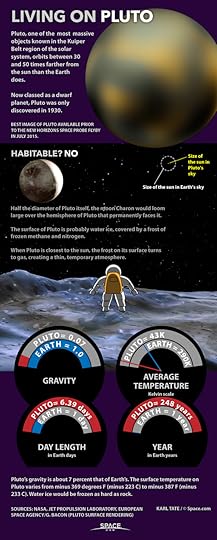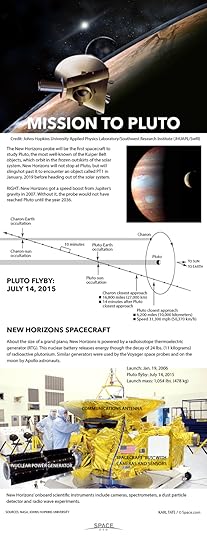R.P. Nettelhorst's Blog, page 46
April 2, 2015
God’s Enemy
He presented another parable to them: “The kingdom of heaven may be compared to a man who sowed good seed in his field. But while people were sleeping, his enemy came, sowed weeds among the wheat, and left. When the plants sprouted and produced grain, then the weeds also appeared. The landowner’s slaves came to him and said, ‘Master, didn’t you sow good seed in your field? Then where did the weeds come from?’
“‘An enemy did this!’ he told them.
“‘So, do you want us to go and gather them up?’ the slaves asked him.
“‘No,’ he said. ‘When you gather up the weeds, you might also uproot the wheat with them. Let both grow together until the harvest. At harvest time I’ll tell the reapers: Gather the weeds first and tie them in bundles to burn them, but store the wheat in my barn.’”
He presented another parable to them: “The kingdom of heaven is like a mustard seed that a man took and sowed in his field. It’s the smallest of all the seeds, but when grown, it’s taller than the vegetables and becomes a tree, so that the birds of the sky come and nest in its branches.”
He told them another parable: “The kingdom of heaven is like yeast that a woman took and mixed into 50 pounds of flour until it spread through all of it.” (Matthew 13:24–33)
Jesus gave his disciples three pictures of the kingdom of heaven. “Heaven” was used as a circumlocution for God. Matthew’s Jewish audience, out of fear of using God’s name in vain, was accustomed to using other words to represent God, rather than speaking of him directly.
First, Jesus compared the kingdom of heaven to a field of wheat that was infested with weeds. Second, Jesus compared the kingdom to a mustard seed, that is tiny but becomes an enormous bush. And finally, Jesus compared the kingdom of heaven to a bit of yeast that spread to fill fifty pounds of flour.
What does Jesus want us to understand then, about God’s kingdom? The kingdom of God is made up of human beings. And as we know from our own lives, not everything we do is always necessarily good. We remain less than perfect, even with the Holy Spirit living inside of us. We make mistakes. We make progress very slowly. Sometimes it may seem that nothing much has improved in our behavior for a very long while.
The kingdom of heaven grows and spreads both in our own lives and in the world around us. There may be opposition and problems along the way; but its growth is inevitable and unstoppable.
 Send to Kindle
Send to Kindle
April 1, 2015
Living on Pluto?
March 31, 2015
Mission to Pluto
March 30, 2015
Paradox
Meanwhile, when a crowd of many thousands had gathered, so that they were trampling on one another, Jesus began to speak first to his disciples, saying: “Be on your guard against the yeast of the Pharisees, which is hypocrisy. There is nothing concealed that will not be disclosed, or hidden that will not be made known. What you have said in the dark will be heard in the daylight, and what you have whispered in the ear in the inner rooms will be proclaimed from the roofs.
“I tell you, my friends, do not be afraid of those who kill the body and after that can do no more. But I will show you whom you should fear: Fear him who, after the killing of the body, has power to throw you into hell. Yes, I tell you, fear him. Are not five sparrows sold for two pennies? Yet not one of them is forgotten by God. Indeed, the very hairs of your head are all numbered. Don’t be afraid; you are worth more than many sparrows.
“I tell you, whoever acknowledges me before men, the Son of Man will also acknowledge him before the angels of God. But he who disowns me before men will be disowned before the angels of God. And everyone who speaks a word against the Son of Man will be forgiven, but anyone who blasphemes against the Holy Spirit will not be forgiven.
“When you are brought before synagogues, rulers and authorities, do not worry about how you will defend yourselves or what you will say, for the Holy Spirit will teach you at that time what you should say.” (Luke 12:1–12)
Paradox is a word we use to describe apparent contradictions. We face one in this passage. First Jesus tells his followers that they should “fear” God. But then he tells them, “don’t be afraid.” In Greek, the words translated “fear” and “afraid” are identical.
So, Jesus told us not to fear those who can merely kill us. Instead, we should fear God, who can throw us into Hell. But at the same time, we don’t need to fear because God cares so much about us.
So what was Jesus really saying? That it is silly to worry when we have God with us, the God that is powerful enough to destroy us, but has chosen not to. Such a God won’t let mere mortals thwart us. He’ll see us through whatever happens, even death—because he’s on the other side of death. It’s those who are against God—those who want to harm us—that really have something to be afraid of.
 Send to Kindle
Send to Kindle
March 29, 2015
Help for the Helpless
A herd of many swine was feeding there on the mountain. So they begged Him that He would permit them to enter them. And He permitted them. Then the demons went out of the man and entered the swine, and the herd ran violently down the steep place into the lake and drowned.
When those who fed them saw what had happened, they fled and told it in the city and in the country. Then they went out to see what had happened, and came to Jesus, and found the man from whom the demons had departed, sitting at the feet of Jesus, clothed and in his right mind. And they were afraid. They also who had seen it told them by what means he who had been demon-possessed was healed. Then the whole multitude of the surrounding region of the Gadarenes asked Him to depart from them, for they were seized with great fear. And He got into the boat and returned.
Now the man from whom the demons had departed begged Him that he might be with Him. But Jesus sent him away, saying, “Return to your own house, and tell what great things God has done for you.” And he went his way and proclaimed throughout the whole city what great things Jesus had done for him. (Luke 8:32–39)
The demons asked Jesus if they could go into the pigs. He gave them permission. The pigs drowned. The people of the region asked Jesus if he would please leave them, and so Jesus left them. But the man who was freed from the demons, who wanted to go with Jesus and leave with him? Jesus told him no.
Jesus did what the demons wanted. Jesus did what the people in the region of the Gadarenes wanted. But he didn’t do what the man that he’d healed from the demons wanted.
The demons did not get what they wanted, however. Their pigs drowned. And the people of the region of the Gadarenes didn’t really get what they wanted, either. Because the healed man stayed and he told them all about what Jesus had done for him. He became a missionary for Jesus; he brought the news of God’s kingdom to them.
And so, in the end, the formerly demon possessed man was the only one who got what he wanted: a new life filled with Jesus. He may not have traveled with Jesus, but Jesus traveled with him.
 Send to Kindle
Send to Kindle
March 28, 2015
One Year in Space
March 27, 2015
Living on Triton?
March 26, 2015
Opportunity on Mars
March 25, 2015
Proof
As the crowd swelled, he took a fresh tack: “The mood of this age is all wrong. Everybody’s looking for proof, but you’re looking for the wrong kind. All you’re looking for is something to titillate your curiosity, satisfy your lust for miracles. But the only proof you’re going to get is the Jonah-proof given to the Ninevites, which looks like no proof at all. What Jonah was to Nineveh, the Son of Man is to this age.
“On Judgment Day the Ninevites will stand up and give evidence that will condemn this generation, because when Jonah preached to them they changed their lives. A far greater preacher than Jonah is here, and you squabble about ‘proofs.’ On Judgment Day the Queen of Sheba will come forward and bring evidence that condemns this generation, because she traveled from a far corner of the earth to listen to wise Solomon. Wisdom far greater than Solomon’s is right in front of you, and you quibble over ‘evidence.’
“No one lights a lamp, then hides it in a drawer. It’s put on a lamp stand so those entering the room have light to see where they’re going. Your eye is a lamp, lighting up your whole body. If you live wide-eyed in wonder and belief, your body fills up with light. If you live squinty-eyed in greed and distrust, your body is a dank cellar. Keep your eyes open, your lamp burning, so you don’t get musty and murky. Keep your life as well-lighted as your best-lighted room.” (Luke 11:29–36 MSG)
Jesus downplayed the power of miracles to prove anything. Jesus had just cast a demon from a man who was unable to speak, but rather than believing, the Pharisees explained the miracle away as the work of the devil. Then they demanded Jesus give them another miracle to prove that they were wrong.
Instead of offering them another miracle, Jesus offered them judgment. He unfavorably compared them with people of the past: those who had repented of their wickedness and those who had traveled long distances to hear wisdom. Those people had seen no miracles at all: they had merely heard the words of a prophet and a king.
God’s actions in the world can always be explained away. People can always rationalize whatever they see, they can always find an alternative explanation. God does not demand compliance, he merely requests it.
When we share the words of God, when we tell people how God has worked in our lives, that is really enough. We don’t need grand eloquence or wonders to convince them. People will believe us if they choose to obey God’s request.
 Send to Kindle
Send to Kindle
March 24, 2015
Arrival of the Kingdom
Jesus forced a demon out of a man who could not talk. And after the demon had gone out, the man started speaking, and the crowds were amazed. But some people said, “He forces out demons by the power of Beelzebul, the ruler of the demons!”
Others wanted to put Jesus to the test. So they asked him to show them a sign from God. Jesus knew what they were thinking, and he said:
A kingdom where people fight each other will end up in ruin. And a family that fights will break up. If Satan fights against himself, how can his kingdom last? Yet you say that I force out demons by the power of Beelzebul. If I use his power to force out demons, whose power do your own followers use to force them out? They are the ones who will judge you. But if I use God’s power to force out demons, it proves that God’s kingdom has already come to you. (Luke 11:14–20)
Jesus told those who criticized him that God’s kingdom had already come to them. The proof of the arrival of God’s kingdom was the fact that he was driving out demons. Satan’s authority as ruler of the world was over and God was in charge now. Satan was proven to be a defeated foe, since only God would be capable of getting rid of demons.
The world is still full of trouble and heartache, and we eagerly await the coming of Jesus back to earth again, just as he promised.. But it is also true that even now God is ruling and reigns. Because of Jesus’ sacrifice on the cross, he has overcome the evil one. Ever since, God has connected himself permanently and intimately with all those who call on the name of Jesus.
The ambassador of a foreign nation lives in a building called an embassy. And even though the embassy is physically within the borders of another nation, that embassy is the sovereign territory of the ambassador’s nation. No one may enter it without permission of the ambassador. An attack on the embassy would be the same as an attack upon the foreign nation that the embassy represents. The nation represented by the embassy reaches out across the miles and lives fully within the confines of the embassy grounds. Likewise, the future kingdom of God reaches back from the future and lives within each of us. The kingdom of God is here, now, with each one of us.
 Send to Kindle
Send to Kindle








